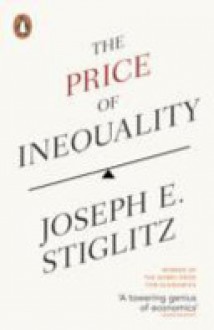The social impact of inequality is now increasingly understood - higher crime, health problems and mental illness, lower educational achievements and life expectancy. But what are the causes of inequality, why is it growing so rapidly and what are its economic and political impacts? In this...
show more
The social impact of inequality is now increasingly understood - higher crime, health problems and mental illness, lower educational achievements and life expectancy. But what are the causes of inequality, why is it growing so rapidly and what are its economic and political impacts? In this exceptional book Joseph Stiglitz gives the answers. He shows how, left to their own devices, markets are neither efficient nor stable and tend to accumulate money in the hands of the few rather than engender competition, producing slower growth and lower GDP. He also demonstrates how political institutions, far from countering these trends, often enhance them. Arguing that 'another world is possible', The Price of Inequality provides a powerful, vital critique of free-market ideas. 'Superb and original . . . Stiglitz is a rare combination of virtuoso economist, witty polemicist and public intellectual' Robert Kuttner, New Statesman 'Important and smart . . . a searing read' Nicholas Kristof, The New York Times 'The often inchoate anger seen in Occupy Wall Street is given shape, fluency, substance and authority by Stiglitz . . . he methodically and lyrically (almost joyously) exposes the myths that provide justification for 'deficit fetishism''' Yvonne Roberts, Observer 'Trenchant, engaging . . . Stiglitz writes clearly and provocatively' Dante Chinni, Washington Post 'A towering genius of economics' Independent
show less






 13 years ago
13 years ago




 13 years ago
13 years ago